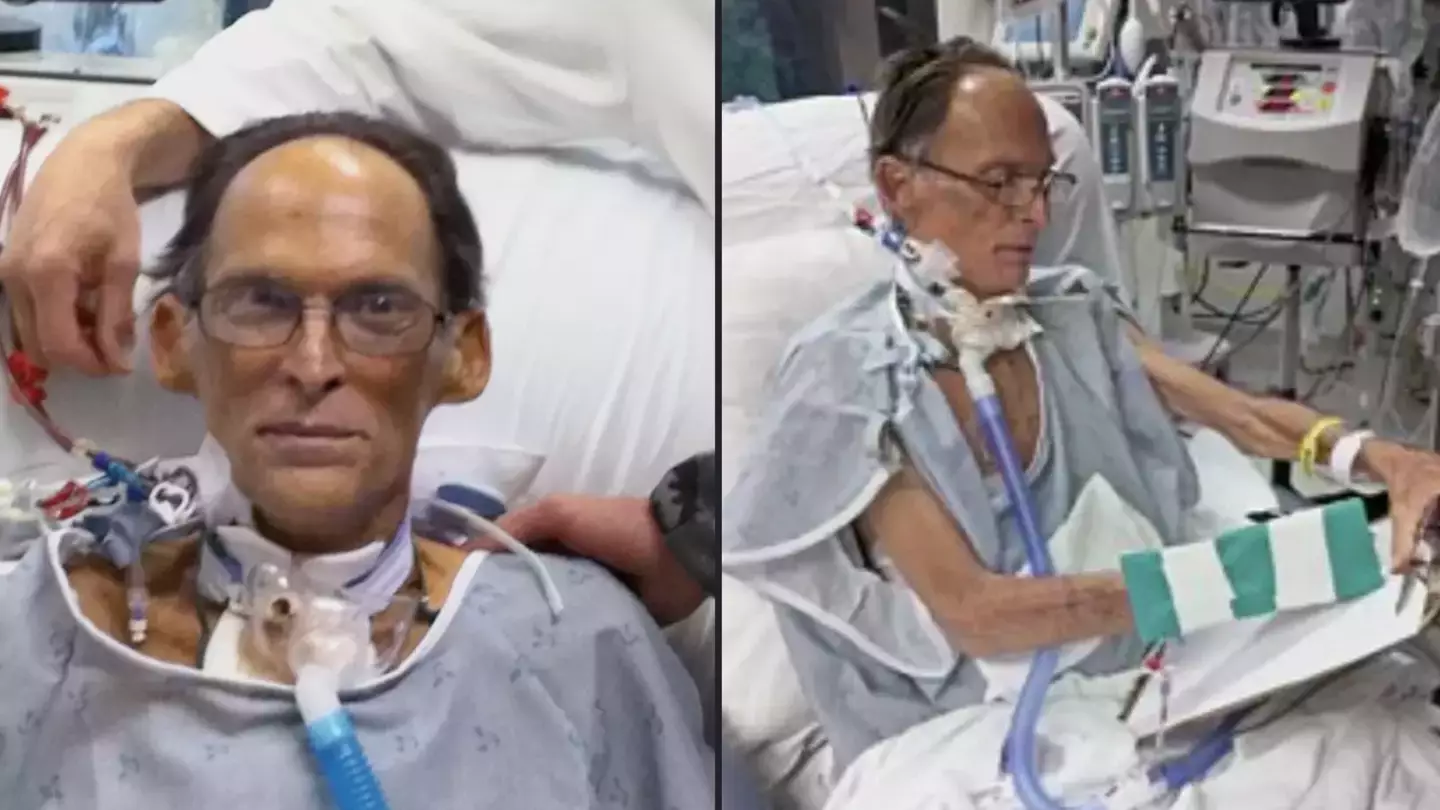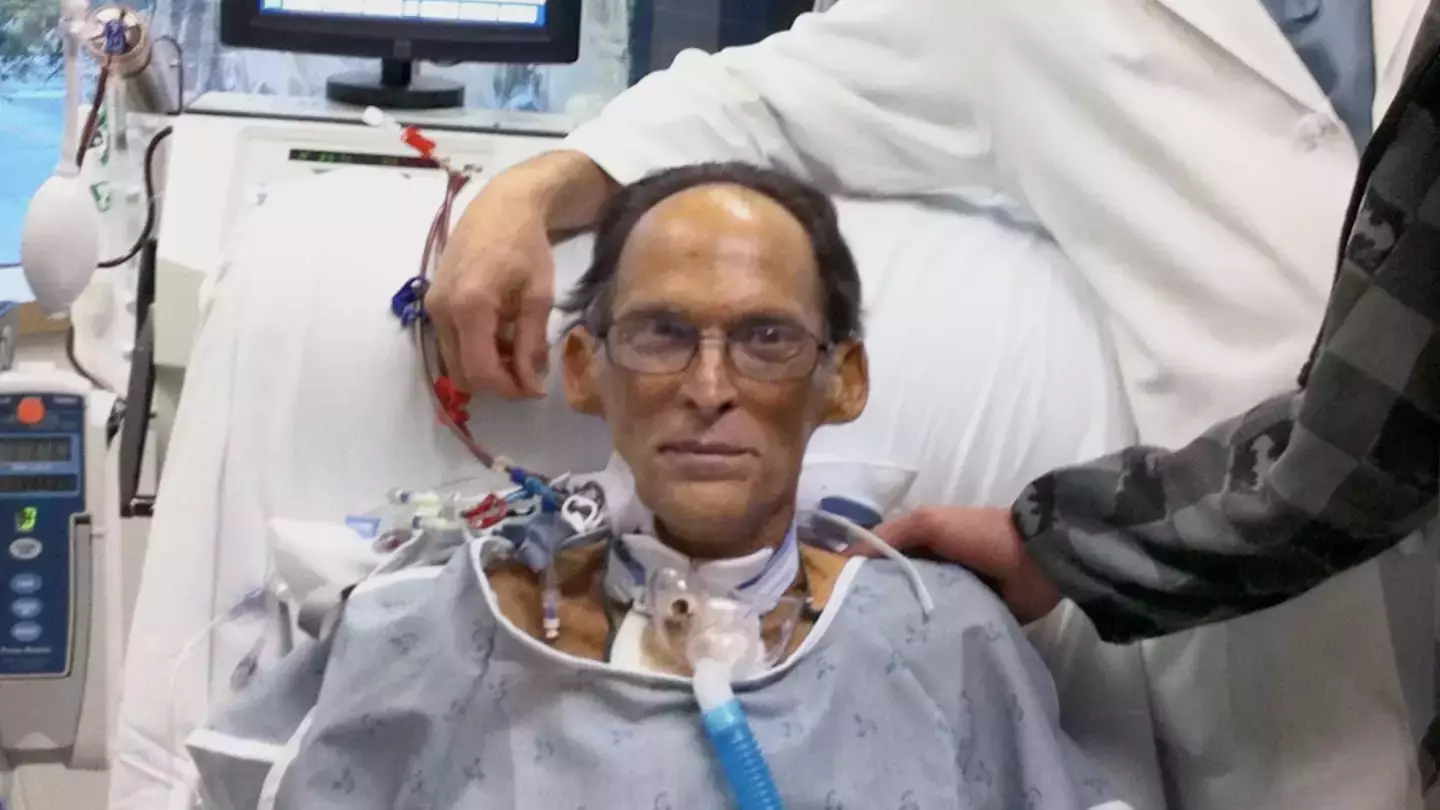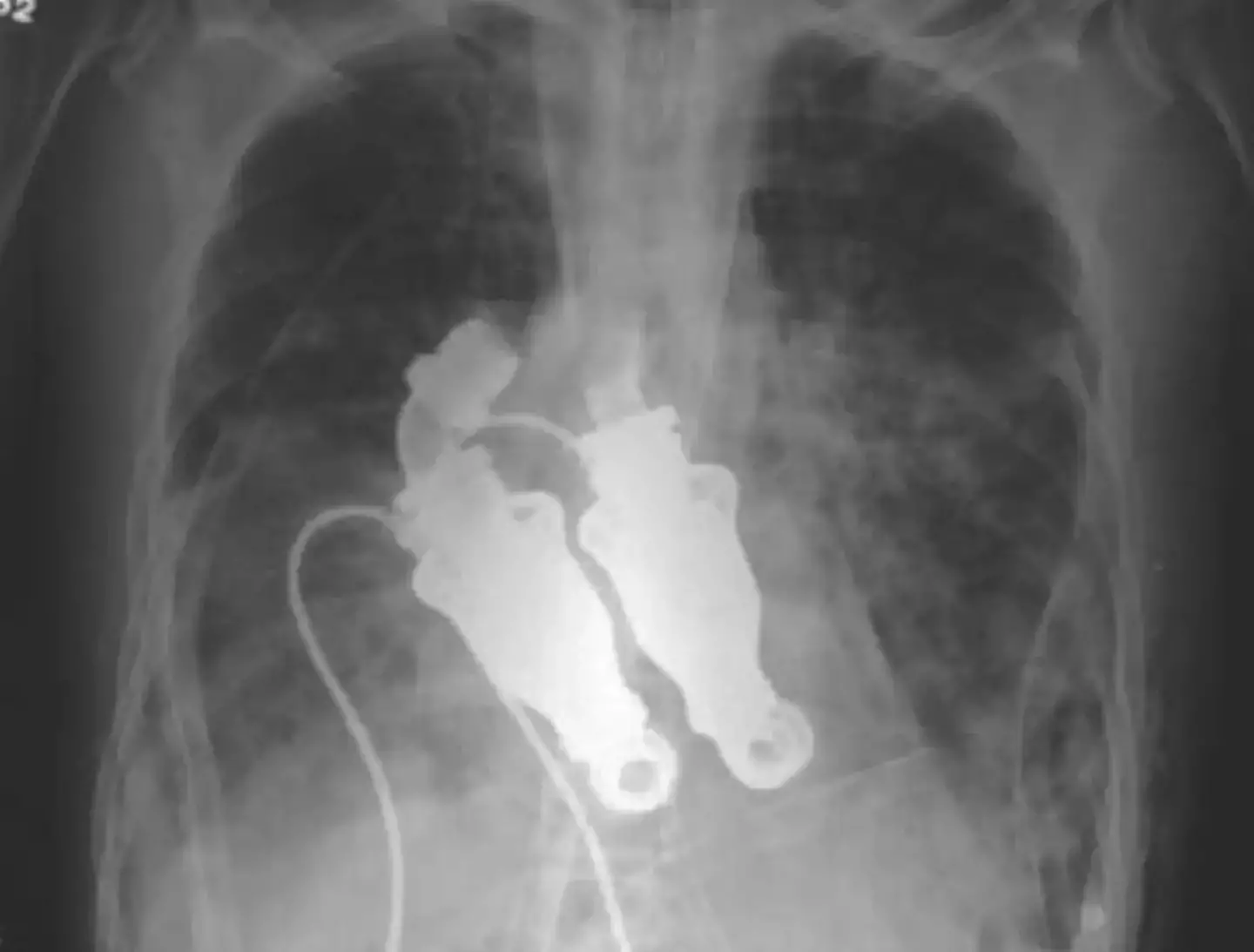
A man who was given 12 hours to live became the world's first heartless human and managed to survive much longer without a pulse.
If there's one organ you'd reckon humans couldn't really do without, it's the heart - though it's not really a competition as there are several vital bits within our body which all pull their weight.
Still, you'd expect a person to need a heart to live as it pumps the blood around our bodies which keeps our muscles and organs supplied with vital supplies of oxygen.
However, advancements in modern medicine reached a point in 2011 where two doctors at the Texas Heart Institute were able to create a device which used whirling rotors to pump blood around the human body without a heartbeat.
Advert
Dr. Billy Cohn and Dr. Buz Frazier first tested the idea in an eight-month-old calf called Abigail, removing her heart and successfully replacing it with two centrifugal pumps, which circulated the blood through her.
"By every metric we have to analyse patients, she's not living," Cohn told NPR. "But here you can see she's a vigorous, happy, playful calf licking my hand."

After practicing on 38 calves, Cohn and Frazier progressed to human trials – selecting a 55-year-old man called Craig Lewis, who was suffering from amyloidosis, a rare autoimmune disease that causes a build-up of abnormal proteins and, in turn, rapid heart, kidney and liver failure.
Lewis' heart had become so damaged that doctors gave him about 12 hours to live, at which point his wife Linda suggested something drastic.
Advert
His wife Linda said: "He wanted to live, and we didn't want to lose him. You never know how much time you have, but it was worth it."
In March 2011, she approached Cohn and Frazier, who removed her husband’s heart and installed the artificial device.
Linda said: "I listened and it was a hum, which is amazing. He didn't have a pulse."
She said her husband – who worked for the city of Houston, maintaining the city’s vast system of wastewater pumps – would have appreciated the pulseless heart cobbled together from various materials, with Cohn explaining: "Dacron on the inside and fiberglass impregnated in silicone on the outside.
"There's a moderate amount of homemade stuff on here."
Advert
The doctors said the continuous-flow pump should last longer than other artificial hearts, and would cause fewer problems.

"We look at all the animals, insects, fish, reptiles and certainly all mammals, and see a pulsatile circulation," Cohn added.
"And so all the early research and all the early efforts were directed at making pulsatile pumps."
The only reason blood has to be pumped rhythmically instead of continuously is down to the heart tissue.
Advert
Cohn continued: "The pulsatility of the flow is essential for the heart, because it can only get nourishment in between heartbeats.
"If you remove that from the system, none of the other organs seem to care much."
After the procedure, Lewis woke up and began to recover.
However, his condition then began to deteriorate as the disease attacked his liver and kidneys, and he sadly passed away in April that year.
But he did manage to live for more than a month with the pulseless heart, with his doctors saying the pumps had worked flawlessly.
Advert
Additional words by Jess Hardiman.
Topics: Health